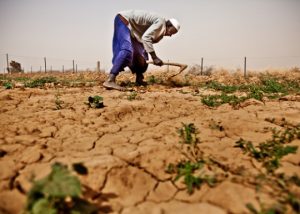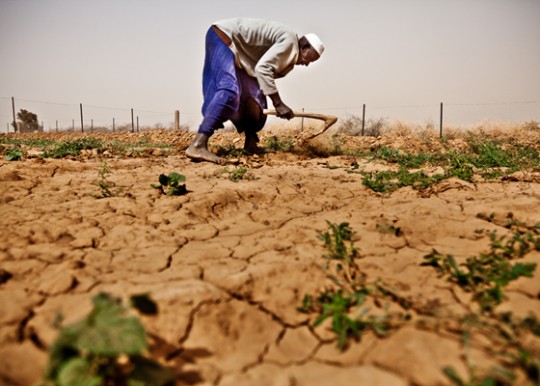 The Food and Agriculture Organization has warned that food security and nutrition levels in the Near East and North Africa have sharply deteriorated over the last five years, undermining the steady improvement achieved before 2010 when the prevalence of undernourishment, stunting, anemia and poverty were decreasing.
The Food and Agriculture Organization has warned that food security and nutrition levels in the Near East and North Africa have sharply deteriorated over the last five years, undermining the steady improvement achieved before 2010 when the prevalence of undernourishment, stunting, anemia and poverty were decreasing.
In its Regional Overview of Food Insecurity in the Near East and North Africa released earlier this week, the FAO noted that the deterioration is largely driven by the spreading and intensity of conflicts and protracted crises.
The assessment made by FAO using the Food Insecurity Experience Scale (FIES) shows that the prevalence of severe food insecurity in the adult population of the Near East and North Africa was close to 9.5 percent in 2014-2015, representing approximately 30 million people.
The Syria crisis in particular has deepened during the period 2015-2016, leaving more than half of the population in need of food assistance and 4.8 million refugees, mostly in neighboring countries. The numbers of food insecure and the internally displaced are also rising in Iraq and Yemen, the new FAO report said.
Beyond conflicts and crises, the report argues that water scarcity and climate change are the most fundamental challenges to ending hunger, achieving food security, improving nutrition and promoting sustainable agriculture by 2030. Water scarcity is the binding factor to agricultural production in the Near East and North Africa region and the driver of the region’s dependency on food imports.
Another UN agency, the UNICEF, on its part warned that around 22 million children are on the brink of starvation in the worst humanitarian crisis in decades.
The UNICEF launched an urgent call for nearly $255 million to respond to immediate needs in northeast Nigeria, Somalia, South Sudan and Yemen.
“Time is running out,” UNICEF said in a press release, noting that some 22 million children are hungry, sick, displaced and out of school in the four countries, and that nearly 1.4 million are at imminent risk of death this year from severe malnutrition.
Famine was declared a month ago in South Sudan, and will likely be declared soon in Nigeria, Somalia and Yemen where fighting has pushed people off their farmland and droughts have destroyed their animals and what is left of crops, the UNICEF said.
The $255 million needed will provide 22 million children with food, water, health, education and protection services for just the next few months, according to a new funding update by UNICEF.
This request is part of a broader appeal for all of 2017 totaling $712 million, up 50 per cent from what was requested for these four countries at the same time last year.
